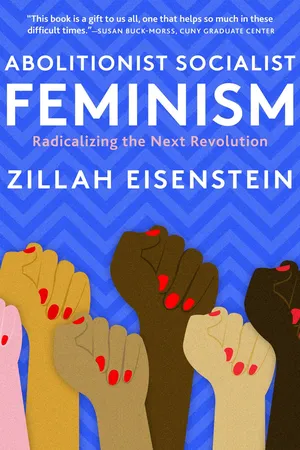![]()
SELECTED READINGS
BOOKS
Alexander, Michelle. The New Jim Crow: Mass Incarceration in the Age of Colorblindness. New York: The New Press, 2010.
Alcoff, Linda Martin. The Future of Whiteness. Malden, MA: Polity, 2015.
Ambedkar, B.R. Annihilation of Caste. London: Verso Books, 2016.
Anderson, Carol. White Rage: The Unspoken Truth of Our Racial Divide. New York: Bloomsbury, 2016.
Bullard, Robert D. and Beverly Wright. The Wrong Complexion for Protection: How the Government Response to Disaster Endangers African American Communities. New York: New York University Press, 2012.
Burton, Susan and Cari Lynn. Becoming Ms. Burton: From Prison to Recovery to Leading the Fight for Incarcerated Women. New York: The New Press, 2017.
Clausewitz, Carl von. On War. Edited by Michael Howard and Peter Paret. Princeton: Princeton University Press, 1976.
Coates, Ta-Nehisi. Between the World and Me. New York: Penguin, 2015.
———. We Were Eight Years in Power. New York: Penguin, 2017. Davis, Angela. Women, Race, and Class. New York: Vintage, 1983.
———. Are Prisons Obsolete? New York: Seven Stories Press, 2003.
Desmond, Matthew. Evicted: Poverty and Profit in the American City. New York: Broadway Books, 2016.
Eisenstein, Zillah, ed. Capitalist Patriarchy and the Case for Socialist Feminism. New York: Monthly Review Press, 1979.
Feimster, Crystal N. Southern Horrors: Women and the Politics of Rape and Lynching. Cambridge: Harvard University Press, 2011.
Feinberg, Leslie. Stone Butch Blues: A Novel. Ithaca: Firebrand Books, 1993.
Gay, Roxane. Hunger: A Memoir of (My) Body. New York: Harper Collins, 2017.
Gilligan, James. Violence: Reflections on a National Epidemic. New York: Vintage, 1997.
Gilmore, Ruth Wilson. Golden Gulag: Prisons, Surplus, Crisis, and Opposition in Globalizing California. Berkeley: University of California Press, 2007.
Glaude Jr., Eddie S. Democracy in Black: How Race Still Enslaves the American Soul. New York: Crown, 2016.
Gordon-Reed, Annette. The Hemingses of Monticello: An American Family. New York: W.W. Norton, 2008.
Hartman, Saidiya. Lose Your Mother: A Journey Along the Atlantic Slave Route. New York: Farrar, Straus, and Giroux, 2007.
Hidayatullah, Aysha. Feminist Edges of the Qur’An. New York: Oxford University Press, 2014.
Hochschild, Arlie Russell. Strangers in Their Own Land: Anger and Mourning on the American Right. New York: The New Press, 2016.
Hunter, Tera. Bound in Wedlock: Slave and Free Black Marriage in the Nineteenth Century. Cambridge: Harvard University Press, 2017.
Klein, Naomi. No Is Not Enough: Resisting Trump’s Shock Politics and Winning the World We Need. Chicago: Haymarket Books, 2017.
Lorde, Audre. Sister Outsider: Essays and Speeches. Berkeley, CA: Crossing Press, 1984.
Luxemburg, Rosa. Reform or Revolution. Dover Books, 2006.
Piketty, Thomas. Capital in the Twenty-First Century. Cambridge: Harvard University Press, 2014.
Pratt, Minnie Bruce. Walking Back Up Depot Street: Poems. Pittsburgh: University of Pittsburgh Press, 1999.
Richie, Beth E. Arrested Justice: Black Women, Violence, and America’s Prison Nation. New York: New York University Press, 2012.
Schwartz, Marie Jenkins. Ties That Bound: Founding First Ladies and Slaves. Chicago: University of Chicago Press, 2017.
Segrest, Mab. Memoir of a Race Traitor. Boston: South End Press, 1999.
Smith, Mychal Denzel. Invisible Man, Got the Whole World Watching: A Young Black Man’s Education. New York: Nation Books, 2016.
Stevenson, Bryan. Just Mercy: A Story of Justice and Redemption. New York: Penguin, 2014.
Taylor, Keeanga-Yamahtta. From #BlackLivesMatter to Black Liberation. Chicago: Haymarket Books, 2016.
Tillet, Salamishah. Sites of Slavery: Citizenship and Racial Democracy in the Post-Civil Rights Imagination. Durham: Duke University Press, 2012.
Wekker, Gloria. White Innocence: Paradoxes of Colonialism and Race. Durham: Duke University Press, 2016.
Wilderson, Frank. Incognegro: A Memoir of Exile and Apartheid. Boston: South End Press, 2008.
Yeung, Bernice. In a Day’s Work: The Fight to End Sexual Violence Against America’s Most Vulnerable Workers. New York: The New Press, 2018.
ARTICLES
Cobb, Jelani. “William Barber Takes on Poverty and Race in the Age of Trump.” The New Yorker, May 14, 2018.
Cooper, Brittney. “This is America’s Religion of Violence: The Impunity of Police Violence & the Destruction of Sandra Bland.” Salon.com, December 23, 2015. https://www.salon.com/2015/12/23/the_deadly_theology_that_killed_sandra_bland_inside_americas_religious_devotion_to_state_violence/.
Crenshaw, Kimberlé Williams. “The Girls Obama Forgot.” New York Times, July 29, 2014. https://www.nytimes.com/2014/07/30/opinion/Kimberl-Williams-Crenshaw-My-Brothers-Keeper-Ignores-Young-Black-Women.html?ref=opinion&_r=0.
Davis, Angela. “Reflections on the Black Woman’s Role in the Community of Slaves.” The Massachusetts Review 13, no. 1/2 (Winter-Spring, 1972): 81-100.
Garza, Alicia. “Our Cynicism Will Not Build a Movement. Collaboration Will.” Mic, January 26, 2017. https://mic.com/articles/166720/blm-co-founder-protesting-isnt-about-ho-can-be-the-most-radical-its-about-winning#.msnpfr7mJ.
Gonnerman, Jennifer. “Before the Law.” The New Yorker, October 6, 2014. https://www.newyorker.com/magazine/2014/10/06/before-the-law.
———. “Kalief Browder, 1993–2015.” The New Yorker, June 7, 2015. http://www.newyorker.com/news/news-desk/kalief-browder-1993-2015.
Gorelova, Anastasia. “Pussy Riot Member to Be Moved to Another Jail after Hunger Strike.” Reuters.com, October 18, 2013. https://www.reuters.com/article/us-russia-pussyriot/pussy-riot-member-to-be-moved-to-another-jail-after-hunger-strike-idUSBRE99H05M20131018.
“James Baldwin: How to Cool It: Read the 1968 Landmark Q & A on Race in America.” Esquire. http://www.esquire.com/news-politics/a23960/james-baldwin-cool-it/.
Jones, Tayari. “There’s Nothing Virtuous About Finding Common Ground.” Time, November 5, 2018. http://time.com/5434381/tayari-jones-moral-middle-.
Lartey, Jamiles. “Median Wealth of Black Americans ‘Will Fall to Zero by 2053,’ Warns New Report.” The Guardian, September 13, 2017. https://www.theguardian.com/inequality/2017/sep/13/median-wealth-of-black-americans-will-fall-to-zero-by-2053-warns-new-report.
Lomax, Tamura. “#SayHerName: #SandraBland Is Sojourner Truth, Harriet Tubman, and Fannie Lou Hamer.” The Feminist Wire, July 22, 2015. https://www.thefeministwire.com/2015/07/sayhername-sandrabland-is-sojourner-truth-harriet-tubman-and-fannie-lou-hamer-2/.
McBride, Michael, Traci Blackmon, Frank Reid, and Barbara Williams Skinner. “Waiting for a Perfect Protest?” New York Times, September 1, 2017.
Moya, Paula. “New Terms of Resistance: A Response to Zenzele Isoke.” Souls: A Critical Journal of Black Politics, Culture, and Society 15, no. 4, (2013): 341–343.
Mueller, Mark. “See Who’s Speaking at the Women’s March on Washington Saturday.” NJ.com, January 20, 2017. http://www.nj.com/news/index.ssf/2017/01/see_whos_speaking_at_the_womens_march_on_washingto.html.
Pleasant, Liz. “Meet the Woman Behind #BlackLivesMatter—The Hashtag That Became a Civil Rights Movement.” YES! Magazine, Summer 2015. https://billmoyers.com/2015/05/04/meet-woman-behind-blacklivesmatter-hashtag-became-civil-rights-movement/?utm_source=General+Interest&utm_campaign=c7a89a47d3-Midweek12171412_17_2014&utm_medium=email&utm_term=0_4ebbe6839f-c7a89a47d3-168294985.
Pollitt, Katha. “The Women’s March Succeeded Because It Spoke to Women’s Outrage.” The Nation, January 23, 2017. h...
